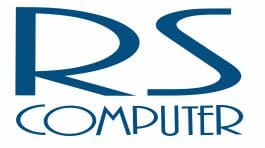
Rockey2 Dongle
ROCKEY2 – driver less copy protection dongle for low budget solution
Rockey2 is the revised economic version of ROCKEY4, it is under the 2nd generation of dongle security technology. It is built with traditional EEPROM storage and uses driver native to Windows and Linux thus make it simple to implement and at very low cost too.
Each ROCKEY2 dongle contains a User ID (UID) as well as the globally unique Hardware ID (HID). Developers are required to generate their own UID by inserting up to 64 bytes of Seed Code. HID is the unchangeable ID that have been burn into the dongle during production.
Important: It is not possible to reverse engineer the UID and get the Seed Code. Developer must keep the seed code safely.
No driver needed – ROCKEY2 uses driver native to Windows and Linux. The operating system will prompt you for installing the new device (ROCKEY2 support USB port only and for Win98SE, it will require the Window installation CD).
Large memory space – ROCKEY2 built with 2560 bytes of read/write memory.
Enveloping – In the ROCKEY2 Utility CD, there is an Envelope program which allows software developers to encrypt any executable files (.exe, dll) in a few simple steps. This solution does not require any programming skills and is an ideal solution if you do not possess the source code for the application.
Furthermore there are also enveloper for Flash media files (.swf) and .Net applications.
Low cost – ROCKEY2 is aimed for developer who wish to deploy dongle protection but with limited budget. E.g. if your software is selling below USD100 and you are searching for a cost-effective dongle protection then ROCKEY2 will be your best choice.
Simplicity – ROCKEY2 is extremely easy to implement if you just want simple software protection.
| Rockey2 |
|---|
| Driverless HID device |
| Hardware ID globally unique identifier |
| Shell encryption function |
| 2560 bytes user space |
| Multiple platform support: Windows, Linux, MAC |
| Multiple software interfaces – support API32 / 64 bit programming: Delphi, Java, PB, VB, VC, C#, VS.NET, etc. |
